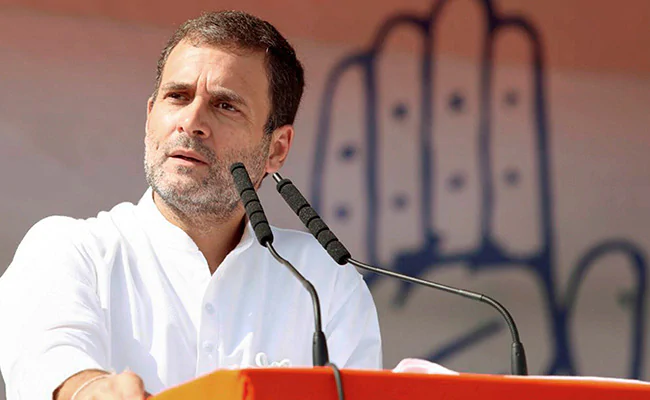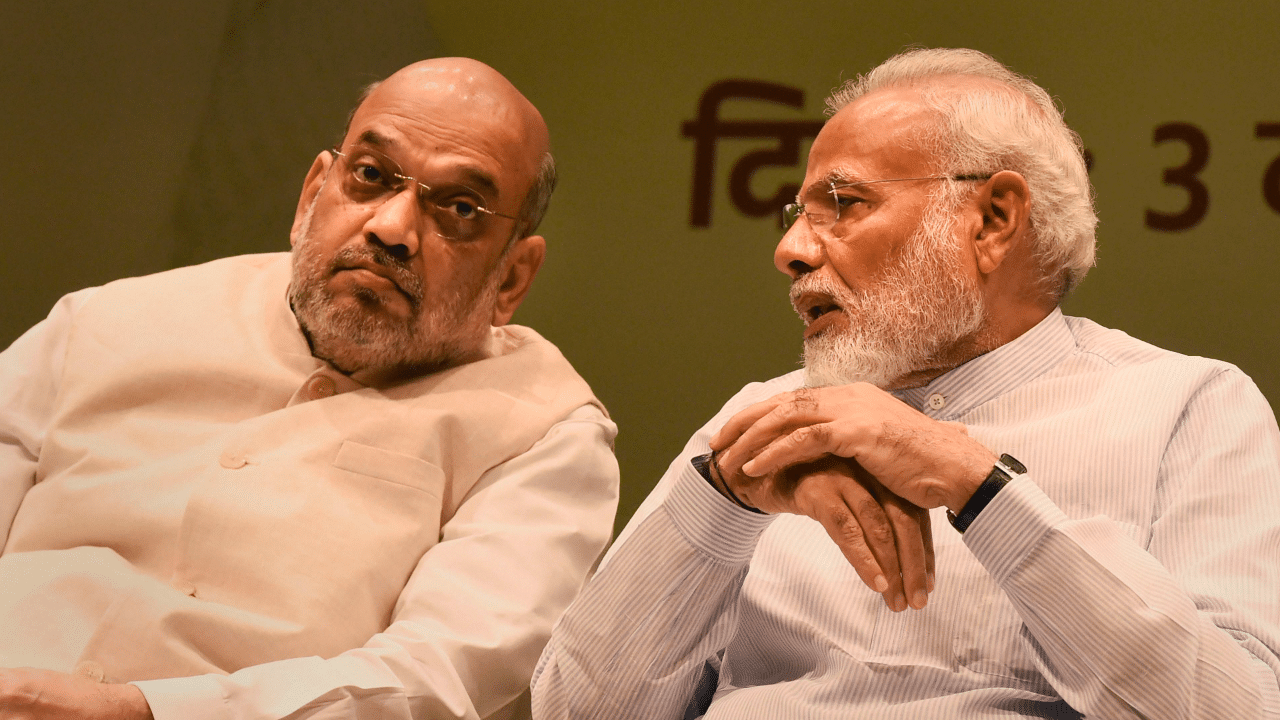“India is a union of states and can’t be ruled as a kingdom”, lamented Congress leader Rahul Gandhi in the parliament. In an impactful speech, he took a jibe at the center by listing out the issues plaguing the country. He asked questions regarding the rising unemployment, which led to a riot in Bihar, the growing gap between the rich and the poor, the flawed foreign policy that has isolated India from all sides and has united China and Pakistan, the Pegasus, and the national security issue. Gandhi in his speech asked poignant questions, but one part of it that connected with the diverse socio-ecological and cultural land of India was the idea of partnership.
What Rahul Gandhi has done is to explain the fundamentals of federalism that are ingrained in our constitution. First, let’s understand the definition of federalism. Federalism is understood as a method of promoting self-rule and shared rule, and it is an art of balancing the interests of a nation with regard to its region. However, this was not a by-default choice of India; it had to go through several crises for a federal structure to emerge. Let’s begin at the beginning, where it all started.
Federalism in the Indian governing structure
When India got its freedom in 1947, the people residing in it had only one party to look up to in terms of governing and taking India forward. The Congress party existed with total autonomy over Indian politics for the initial decades of India. There were conflicts and factions inside the party, but no other party had emerged to challenge it. But that didn’t go on for long. The Nehru era was replaced by Lal Bahadur Shastri and then Indira Gandhi. Indira was challenged by her own party members, known as the ‘Syndicate’, and was expelled from the party, but she formed a new congress that came back to power in 1971.

But during the mid-1970s, the hegemony of the Congress over Indian politics started eroding. The Janata Government, the old version of the Bharatiya Janata Party, became successful at winning and emerging as a strong opposition later. The other significant fact was that they introduced the first coalition government. Later, the Atal Bihari Vajpayee led National Democratic Alliance completed its tenure as the first coalition government to sustain its full term.
The coalition government plays a huge role in the emerging federalization of national politics. The regional parties got representation in the decision-making process of India.
Meanwhile, Congress has learned the idea of partnership the hard way. Indira Gandhi declared an emergency in 1975. Indira got tagged as an authoritarian, a leader with dictatorial tendencies. In Rahul Gandhi’s words, she made the mistake of treating India as a kingdom. And the cost she paid was heavy. Operation Bluestar was an army operation commanded by then Prime Minister Indira Gandhi that had troops of the army enter into the Golden Temple to neutralize a preacher, Jarnail Singh Bhindranwale. The Punjab Sikh sentiments were hurt as the army barged into their sacred shrine, and this led to Indira Gandhi’s assassination by her bodyguards, who were Sikh.

The congress of that period didn’t take into consideration the sentiments of the people of Punjab and paid a huge cost.
What makes Rahul Gandhi’s speech impactful is that he has witnessed the failures of Congress and has gone through the repercussions personally. He says that India is a bouquet and states like Tamil Nadu are flowers, and their culture and identity should be respected. History reminds us that the Liberation Tigers of Tamil Elam (LTTE) and their chief, Prabhakaran, assassinated Rajiv Gandhi in Sriperumbudur, Tamil Nadu.
Present India and the corroded values of partnership
The Narendra Modi government has been accused of committing the same mistakes that Congress did during its early decades in power. It is just doing it more aggressively. Under his regime, India witnessed the largest protest, with thousands of farmers demanding the repeal of the law. It finally had to listen to the farmers, but the protest took the lives of around 700 farmers, which was not mentioned anywhere by the government.
The Modi-Shah duo appears intoxicated by power, which is evident in their campaigns for the upcoming assembly elections. All the data conducted by various platforms suggests that India is going through a rise in unemployment and decisions like demonetization and GST have killed the small industries after the second wave of the pandemic. But Amit Shah is bringing communal issues and the successful inauguration of temples into his speeches in Uttar Pradesh.

But the power of federalism has, time and again, successfully challenged their arrogance. Narendra Modi could only capture the role of a national leader, but when it comes to voting in the state, people vote for the candidate who has roots in that land, the one who identifies with the culture, language, and knows the basic needs of the area. This has backfired on the BJP, which has been not doing great when it comes to assembly elections, even after managing to win by a huge margin in the Lok Sabha elections.
The defeat in West Bengal and not managing to make any political waves in Tamil Nadu and Kerala comes as a learning lesson that one linear definition of nationalism propagated by the BJP won’t be able to encompass the diverse beliefs and culture that makes India.
Also Checkout: State polls 2022: Opposition Needs To Come Ahead Of Opportunism For Competing With BJP
















